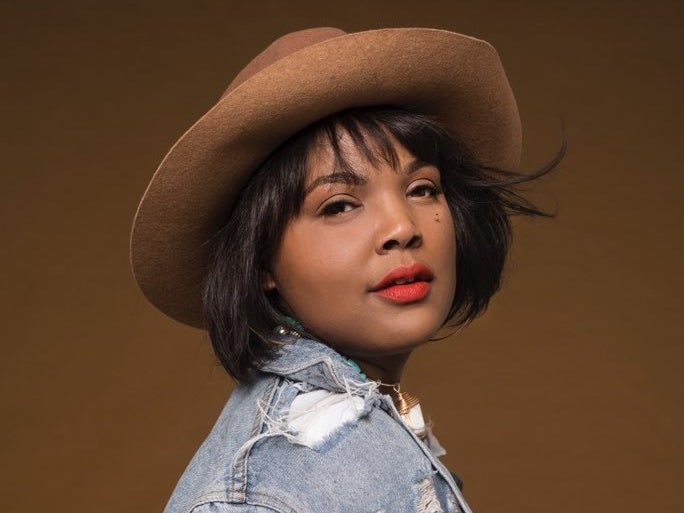
“The fact that the adult American Negro female emerges a formidable character is often met with amazement, distaste and even belligerence. It is seldom accepted as an inevitable outcome of the struggle won by survivors and deserves respect if not enthusiastic acceptance.” – Maya Angelou
In the eleventh grade, my mother came home from back-to-school night with a certain look on her face. It was partially annoyed, partially frustrated, but definitely, all parts bothered. I knew she was ruminating on something by the way her top lip aggressively separated from her bottom lip, but no words came out. And knowing her for as long as I did, I recognized the moment for what it was. She was angry.
Apparently, during a sit down with my eleventh-grade social studies teacher, Mr. Sanderson had told my mother that I had a bright future. That I was poised, intelligent, and took my work seriously. And that I was a pleasure to have in his class. He was right. But what bothered my mother, and me once she told me, was the fact that he offset the would-be compliment with disparaging words about other students. “Most of these kids are going to grow up and work the cash register at McDonald’s,” he matter-of-factly stated.
The following year, I would enter Mr. Forst’s trig/calc class. He had his moments of human civility but mainly he was white and crotchety with preconceived ideas about the lives of his students. One day during a particularly trying trigonometry lesson he said, “don’t go far,” referring to our college aspirations, “because you will be back.” See, Mr. Forst, much like Mr. Sanderson believed that the majority of the students at my New Jersey Abbott school district were likely too poor, too dumb, too indisciplined—or a combination of the sort—to ever become something more than what they thought we had the potential to be.
Thankfully, for me, my mom didn’t play when it came to education and she certainly didn’t care what my teachers speculated about me. My sister and I would become whatever we wanted to, because she drilled into us that we were not allowed to tell ourselves “no.”
Yet, that doesn’t negate the fact that for so many students, little Black girls and boys in particular, no matter how smart, talented, or focused they are, they are often told no. No to leaving the old neighborhood. No to going to college. No to being a CEO. No to owning their own business. And with little to no representation around them, they can’t always envision the possibilities of what could be. So when a Black woman by the name of Beatrice Dixon goes on a national television spot for Target and says, “The reason why it’s so important for Honey Pot to do well is so the next Black girl that comes up with a great idea, she can have a better opportunity,” we applaud that, wholeheartedly, as should every other person who claims they are for equity and equal representation.
In the United States, Black women-owned businesses represent the highest rate of growth out of any demographic, accounting for 50 percent of all women-owned businesses. But still, they face overwhelming challenges in funding their entrepreneurial endeavors. A 2018 DigitalUndivided initiative found that between the years of 2009 and 2017, Black women received .0006 percent of the VC funding offered to startups. And multiple reports have proven that Black women are a lot less likely to be approved for a bank loan to help get their business off the ground. The fact that Dixon was able to take a dream, literally, and turn that into a company that has products gracing the shelves of Target, Walmart, Walgreens, you name it, makes her a shining example of what little Black girls can one day be.
They happen to live in a society that often labels them as loud, combative, and deals with them aggressively. One that tells them that their hair is too coarse, or their lips are too big, or that the very idea that they want better for themselves is laughable and/or impossible. Even when Black women tell them they are magic, some little Black girls still find it hard to conjure big dreams. In a national ad, The Honey Pot co-founder told them that they could and they should.

The Christmas after I graduated from Hampton University, I just so happened to see Mr. Forst while shopping for linens in the home section at Macy’s. I looked at him, bath towels in hand, and contemplated, for a moment, if I should say anything. Should I tell him that I did go far, went to Virginia and stayed for four years? That I received my degree in Print Journalism and I’m gainfully employed? Maybe I should tell him to deliver a message to Mr. Sanderson, that attending an HBCU taught me that we can be the cashier, the corporate finance lead, a franchise owner, or the CEO. Or maybe I should say nothing at all, offer up a half-ass smile instead, and take my towels to the register to check out. I chose the latter. Tucked in my pride and went about my business with the satisfaction of knowing that I had climbed my way out of his box and proven him wrong.
For too many years this country has denigrated our existence, marginalized our experiences, and told us, with every opportunity, that we, Black women and girls, are less than. If an opportunity to combat that notion offends you, triggers you, or provokes you to further tear us down and label us racist, I promise you this, the problem is you. Stop projecting.